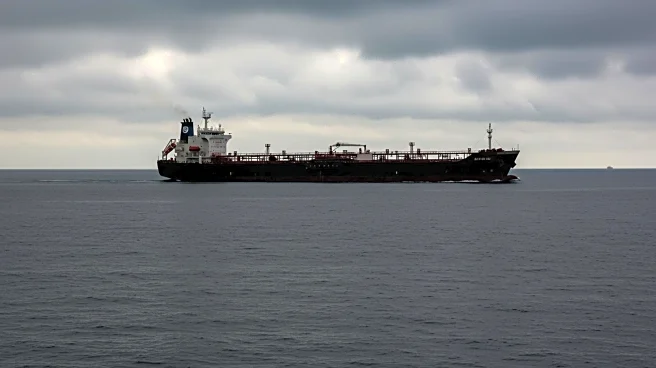What's Happening?
The expansion of the shadow tanker fleet, used to evade Western sanctions, has slowed significantly due to increased sanctions targeting Russian oil exports. The fleet, which includes vessels from Venezuela, Iran, and Russia, faces challenges in finding suitable ships as sanctions tighten. The fleet's size is estimated between 1,200 and 1,600 tankers, representing a fifth of the global tanker fleet. The sanctions, along with a price cap on Russian oil, complicate trade and reduce the availability of vessels for illicit activities.
Why It's Important?
The slowdown in the shadow fleet's growth reflects the effectiveness of international sanctions in curbing illicit oil trade. These measures aim to limit Russia's ability to finance its war efforts through oil revenues. The situation highlights the geopolitical impact of sanctions on global trade and the shipping industry. It also underscores the risks and profitability associated with operating within the shadow fleet, as major players avoid involvement due to legal and insurance challenges. The ongoing sanctions could reshape global oil trade dynamics and influence market stability.
Beyond the Headlines
The shadow fleet's operations raise ethical and legal concerns regarding compliance with international trade laws. The use of older, uninsured vessels poses environmental and safety risks, potentially leading to accidents and oil spills. The situation also highlights the need for enhanced regulatory oversight and international cooperation to address illicit trade practices. Long-term implications may include shifts in global shipping routes and increased scrutiny of vessel ownership and operations.










